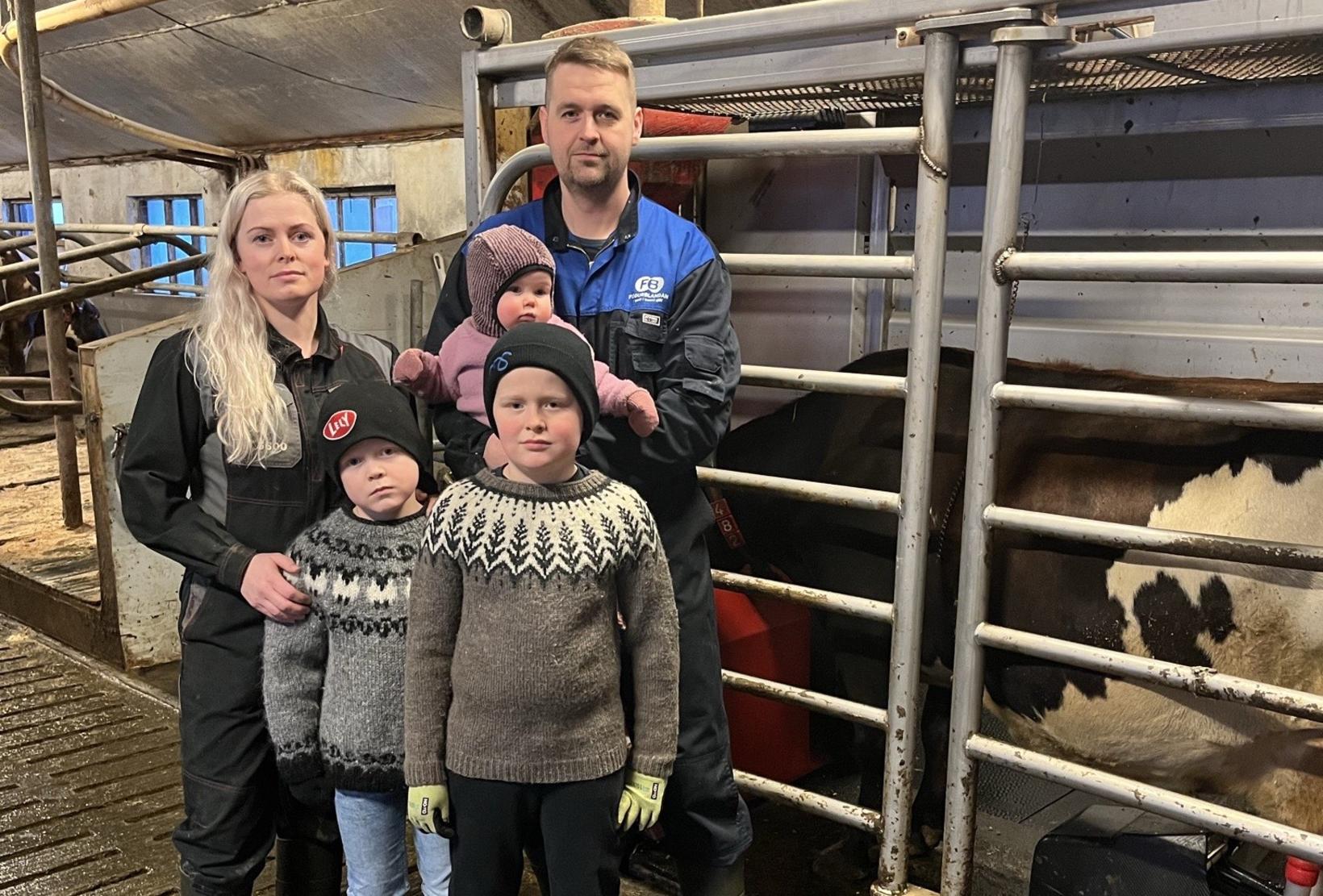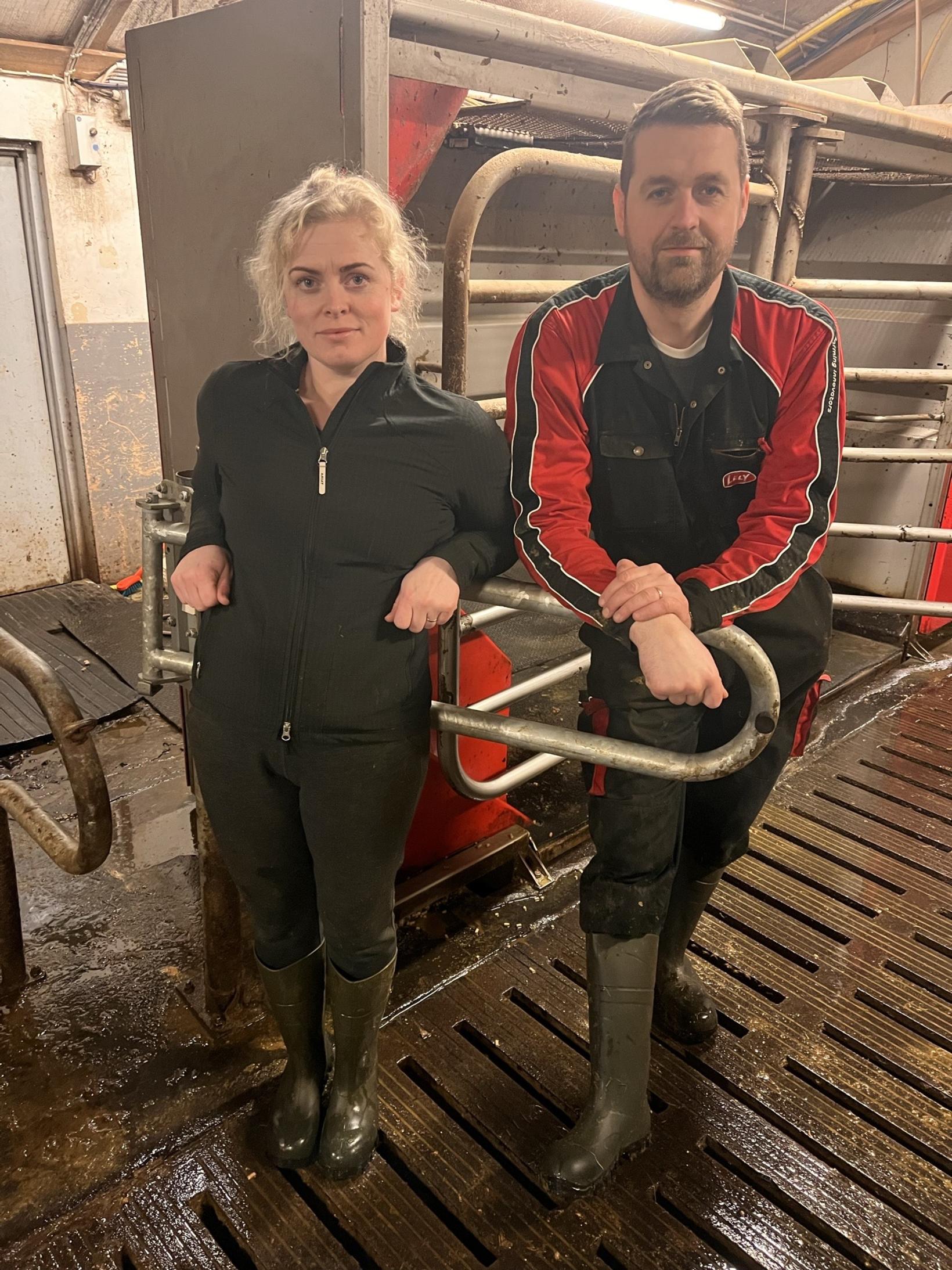Rigid system that does not assume that people can die
Helga Björg Helgadóttir and her late husband Guðjón Björnsson with their three children. Helgadóttir is now battling a system that does not account for people dying. Photo/Sent to mbl.is
“I had to change the ID number for the farm because we didn’t have this as an enterprise but just listed on my husband’s ID number,” Helga Björg Helgadóttir, a cow farmer at Syðri-Hamrar 3 in Ásahreppur, Rangárvallasýsla, told mbl.is. Helgadóttir has been fighting the system since her husband, Guðjón Björnsson, died in an accident at their farm in March.
“When he dies, his ID cannot be used anymore, so I just put the farm just over to my personal ID,” says Helgadóttir, who at the same time began to struggle with an administration that, she says, doesn’t expect people to die.
“As if I had never been in farming”
“I’ve called a lot of companies these days, the slaughterhouses and others, and in most cases things aren’t a problem, it’s just one phone call and things are sorted out, but there, the regulatory system seems to be more complicated. It was just like I was a new farmer and I’d never been in farming,” Helgadóttir continues. Guðjón Björnsson and Helgadóttir took over the farm in 2013 from his parents and have been farming in Syðri-Hamrar since – for a decade. Björnsson was from the farm, but Helgadóttir is from another farm, Súluholt in Flói.
“I am informed that I need to fill out a form online and let the Icelandic Food and Veterinary Authority know to obtain a license to sell milk, and here I was thinking it was only a phonecall away, since we already had a license to sell milk. That turned out to be a much bigger affair.
“But that wasn’t the case. In order to get the license a veterinarian has to audit the farm and go over everything like I am just starting farming. I was asked: Have you any experience in farming?” – when I have been a farmer for ten years. This system is simply so rigid and inflexible that it does not assume that people can die,” says Helgadóttir of her interactions with the governmental agency, although she says the people working there are good people, but the system is way too rigid and needs improvement.
Helgadóttir has been a cowfarmer for ten years with her husband who tragically died earlier this year. She was asked by the veterinarian auditing the farm whether she had any experience in farming, like the last ten years never happened. Photo/sent to mbl.is
The situation that Helgadóttir finds herself in is that she has to apply for a new license to sell milk, which entails a veterinarian coming to audit and go over the facilities at the farm. “Then I get a list of things to fix and you fix it, which is okay,” the cow-farmer says and then continues.
“But at this point I had just lost my husband and was alone with three children. This was in the summer when we were working on the fields gathering hay, you have no time but you still have to get it right, a list of lots of projects to execute and a time frame for that. Of course it’s a good thing to fix things up and keep things as good as possible, but this point wasn’t it possible to wait with this?” Helgadóttir asks, adding that a couple of broken tiles in a dairy-house or cracked-up light-bulbs surely cannot have a big impact when looking at the big picture.
Not in a condition to fight
Are these institutions completely rigid in their demands?
“Yes, it seems to be. I just call them there and I’m in such a state where I just say yes okay, I’m not going to fight with them. I just hope that this will be changed so people don’t have to get into this because at this moment I thought for the first time that I was just going to give up, that I couldn’t do it. And this was the first time since Guðjón dies that I thought like that,” Helgadóttir confesses with a heavy heart.
When asked, however, Helgadóttir says she will try hard to continue her farming, even though she has to adjust and fix everything the Food and Veterinary Authority’s list makes her do. “And on top of that I have to pay for a new license to sell milk,” she adds.
What do you think will lead to improvements in cases like hers?
“Just that people in their prime can die and that there has to be some flexibility in regulations when people die suddenly. We were in this together, it’s not like I was just sitting in a house. There are less than 500 cow farmers in the country and it shouldn’t be so complicated, it doesn’t have to be so rigid,” cow farmer Helga Björg Helgadóttir answers. She plans to finish the project list, try to finish it as she puts it, alone with her three children who are two, nine and eleven years old.







/frimg/1/53/30/1533092.jpg)

